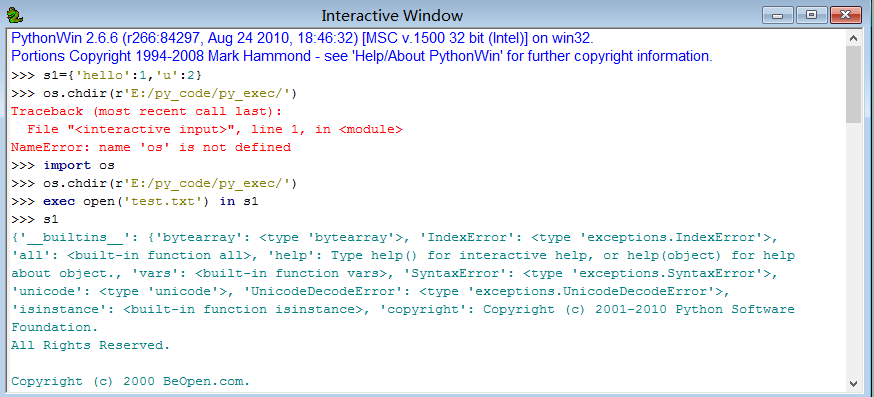37,744
社区成员
 发帖
发帖 与我相关
与我相关 我的任务
我的任务 分享
分享s1={'hello':1,'u':2}
exec open('test.txt') in s1result={‘hello’,’u’}
exec open(‘test.txt’) in result
selected = [] # temp list to hold matches
fp = open(‘test.txt’)
for line in fp.readlines(): # Py2.2 -> “for line in fp:”
selected.append(line)
del line # Cleanup transient variable
open(‘test.txt’).readlines()result={‘hello’,’u’}
exec open(‘test.txt’) in results1={'hello':1,'u':2}
exec open('test.txt') in s1